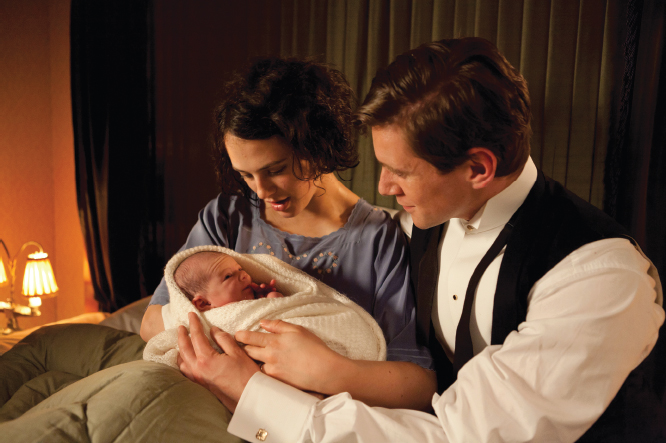Status
Groups also form around—or are defined by—status. Status is like a social currency, unequally distributed within groups, which gives some members more power than others. In some groups, status is formally defined by a clear hierarchy: the military, for example, operates on a hierarchy of leadership with officers outranking enlisted troops. But status is also informally conferred: a charismatic or especially competent military recruit may emerge as a leader and gain status among her peers even if she does not outrank them. That kind of perceived status—based not in any kind of formal rules but instead on peoples’ perceptions of one another—can be potent.

WHEN CHAUFFEUR Tom marries the youngest Grantham daughter, both family and staff struggle to FIGURE out where he fits into the hierarchy of the estate. Joss Barratt/©PBS/Courtesy Everett Collection
Status is often pertinent in the workplace—especially between supervisors and supervisees. To settle well into a company’s organization culture, it’s necessary to carefully foster this relationship. In Chapter 11, we give tips on how to interact with a supervisor or supervisee in a professional and courteous way.
A number of factors have been shown to increase perceptions of status. For example, status can be gained through having access to material resources or information that other group members do not have (Poole & Hollingshead, 2005). Similarly, physical attractiveness has been known to enhance a group member’s status (Webster & Driskell, 1978, 1983). Gender may play a role, too, as males have traditionally had higher status and participation rates and greater access to resources and information than females (Carli, 1999; Ellyson, Dovidio, & Brown; Smith-Lovin, Skvortz, & Hudson, 1986). Of course, as mentioned in the foregoing military example, people can also earn status through their own competence or communicative effectiveness as they participate in the group.
Within groups, those with higher status are given more opportunities to make contributions toward completing the task, their suggestions are often evaluated more positively, and they exert greater influence over lower-status members (Berger, Wagner, & Zelditch, 1985). Perceptions of higher status can lead to those group members having greater influence even if they don’t have any formal power. The “popular kids” at a high school, for example, may have more influence on school events than the elected student council. All of these vagaries are at play in the popular British period drama Downton Abbey, which depicts the goings-on at a stately manor house in the early twentieth century. The Granthams, the aristocratic family that lives in the home, have a high status conferred on them not only by wealth but also by noble title. Within the family, the men are afforded more status than the women, who cannot inherit the estate and are limited in their ability to make decisions. Status also separates the family from the “downstairs” staff, who lack fortune or title, but who consider their status superior to those who work in factories or on the local farms.
